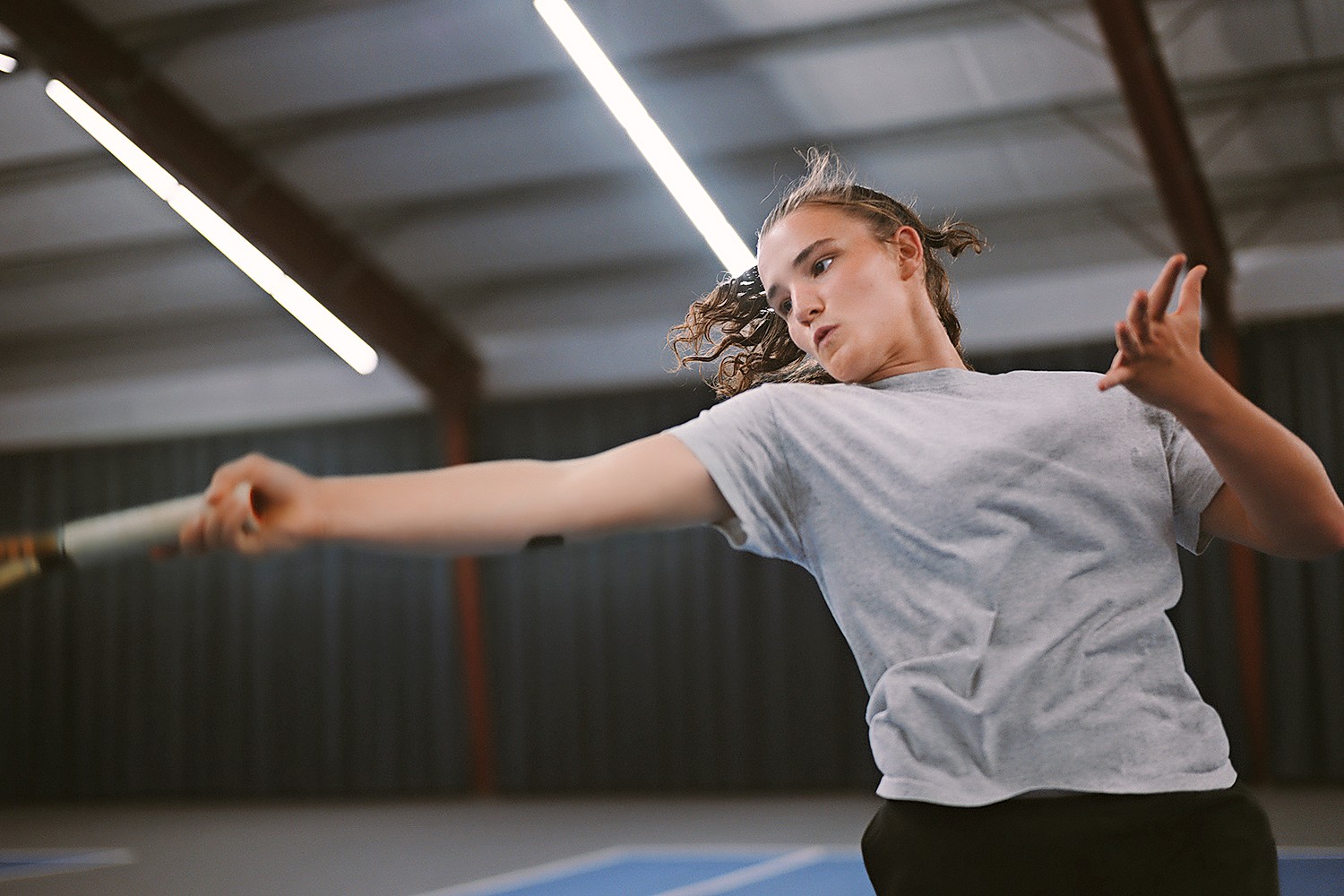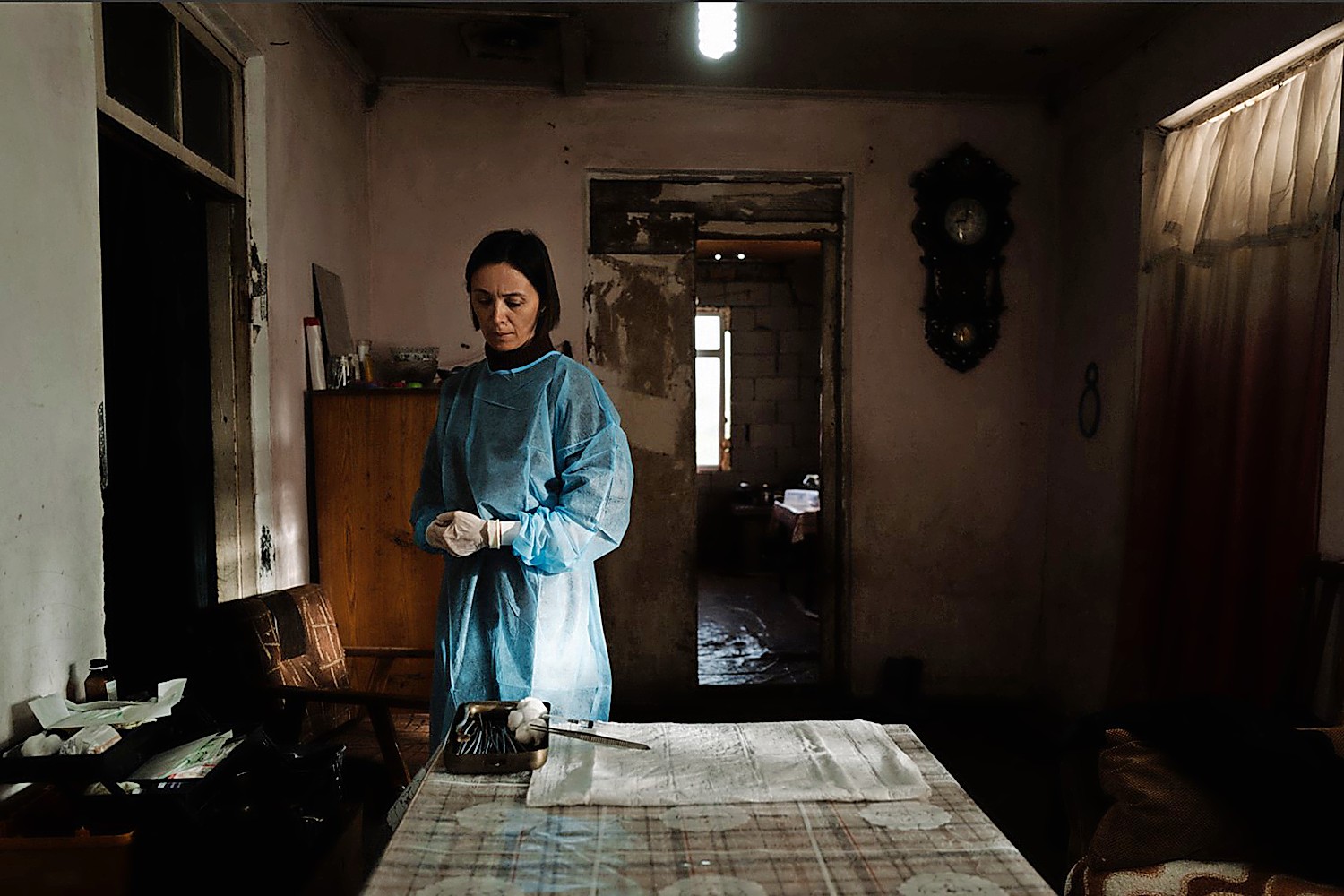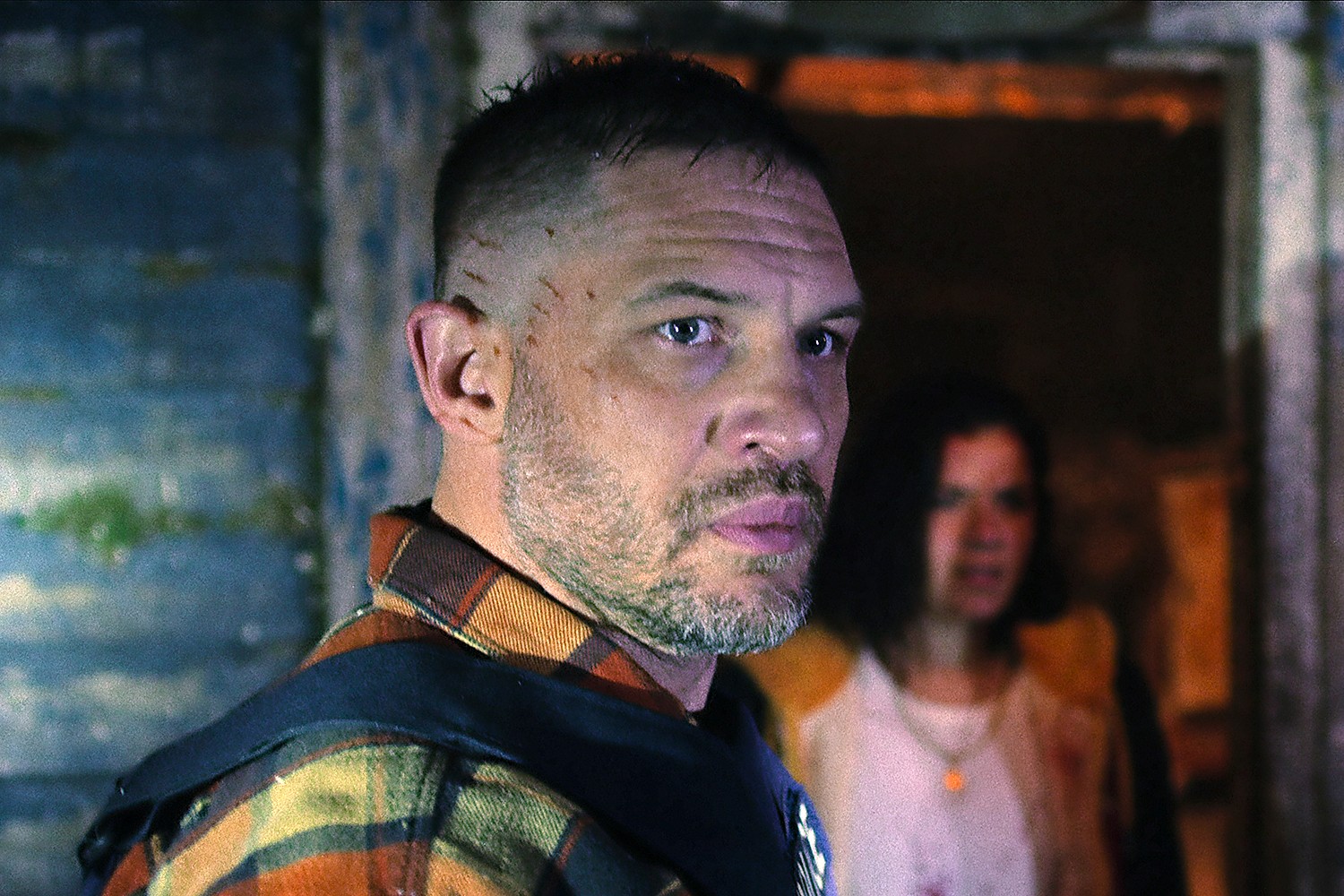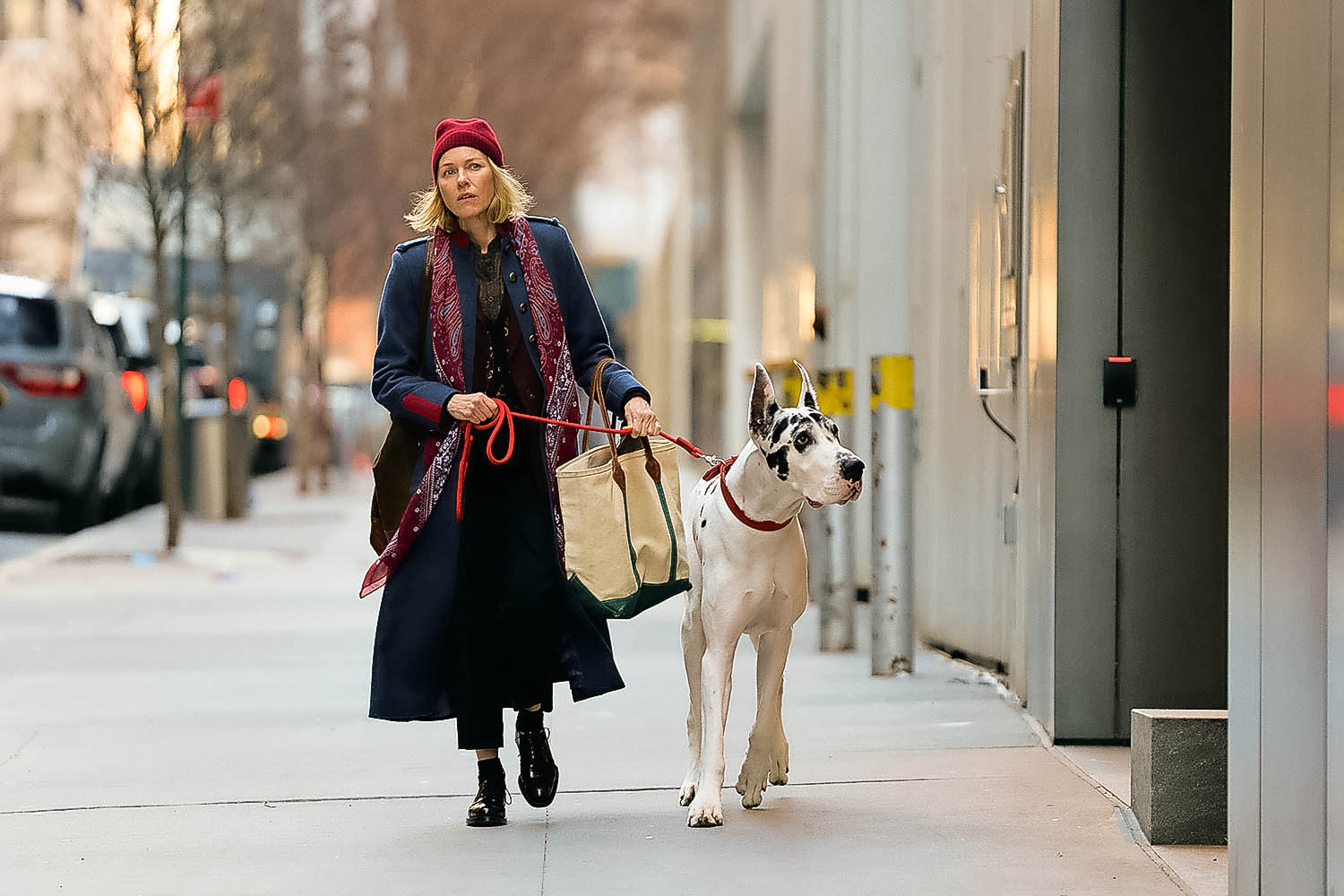The Friend (120 mins, 15)
Directed by Scott McGehee, David Siegel; starring Naomi Watts, Bill Murray, Sarah Pidgeon
It feels disloyal somehow: being a fully paid-up dog person but finding the vast majority of dog movies unbearably irksome and trite. All too frequently, canine-themed cinema reads like the film equivalent of one of those cloying, cutesy memes that assure us “we don’t deserve dogs”. Which may well be true, but dogs deserve better than the kind of gluey greetings-card sentimentality that is routinely served up in the name of man’s best friend.
Part of the problem is that, despite the multitudes contained in the canine species, dog-movie stories almost invariably boil down to two basic narratives: dog embarks on a perilous journey (Lassie Come Home, Eight Below, The Call of the Wild) or dog causes chaos in the home of new owners but teaches valuable life lessons (Marley & Me, the Chinese drama Black Dog). Cat narratives, on the other hand, tend to be less rigidly predictable, although cats being cats, disappearance, soft-furnishing vandalism or some other variety of arseholery are recurring themes.
The Friend, which was adapted from a novel by Sigrid Nunez (who, coincidentally, also wrote the source material for Pedro Almodóvar’s The Room Next Door), falls into the second dog-movie category. Struggling writer Iris (Naomi Watts, bringing emotional complexity to a role that risks being somewhat passive) is coerced into adopting a depressed great dane named Apollo after the death of the dog’s owner – Iris’s mentor, best friend and fellow writer Walter (Bill Murray).
Iris is initially resistant to the idea. She lives in a tiny, rent-controlled apartment in Manhattan, and Apollo is the size of a camel and only slightly more biddable. In addition to being a dog film, this is also a New York movie, so a whole other set of story tropes and cliches come into play, of which property angst figures highly. Iris’s novel has been stalled by a crushing case of writer’s block; she scrapes a living teaching creative writing at a college and is editing a collection of Walter’s correspondence. She can barely afford to subsist in New York, let alone find an alternative, great dane-sized apartment. But since dogs are banned from her building, there are rumblings of imminent eviction proceedings, plus pursed-lipped disapproval and passive aggression from the neighbours.
Apollo, though undeniably handsome, has the look of a hound who would laminate everything with drool
Apollo, though undeniably handsome, has the look of a hound who would laminate everything with drool
As literary adaptations go, this doesn’t break new ground; there’s an inelegant and rather cloddish dependence on Iris’s voiceover in which she addresses “the friend” of the film’s title (one that is shared between both Walter and his dog). But co-writers/directors Scott McGehee and David Siegel, whose credits include the Tilda Swinton-starring thriller The Deep End and the New York divorce drama What Maisie Knew, tend to bring a degree of intellectual sophistication to their projects. Consequently, for all its polite middlebrow veneer (the soundtrack favours classy jazz and opera), this dog picture is more than just mawkish fluff. To some degree it has grit and pathos and even (forgive me) bite.
The dog itself works on several levels. It’s a disruptive presence in the neat, safe order of Iris’s life. And it’s a manifestation of her grief: credit goes to Bing, the harlequin great dane who plays Apollo, and to the animal wranglers who worked with him for squeezing such an affecting portrayal of canine sadness from Bing’s somewhat limited acting repertoire.
Most satisfying on a dramatic level, however, is Apollo’s metaphorical role. This leggy, unwieldy animal with its permanently disappointed expression represents the imbalance in the friendship between Iris and Walter. Apollo is an undeniably handsome beast (although he does have the look of a hound who would laminate everything with drool), but he’s also a big, ostentatious show-off statement, the pet choice of a man who is accustomed to taking centre stage. The dog, like his late owner, claims a disproportionate amount of space in the lives of those close to him. Sharing her home with an animal that commandeers her bed and forces her to sleep on a single mattress on the floor is a neat symbolic representation of Walter’s demands on Iris, whose own writing has been relegated in favour of servicing his legacy. One of the film’s most potent moments imagines a posthumous confrontation between Iris and Walter, a scene in a book that she will eventually write, in which she holds this charismatic, impossible man to account and claws back some agency from the force-of-nature momentum of his personality. While The Friend is not exactly a new breed of dog movie, its bittersweet examination of a flawed friendship at least gives us something to chew on.
And the rest…

Julie Keeps Quiet
Newsletters
Choose the newsletters you want to receive
View more
For information about how The Observer protects your data, read our Privacy Policy
(100 mins, 12A) Directed by Leonardo Van Dijl; starring Tessa Van den Broeck, Laurent Caron, Ruth Becquart
There’s something oddly destabilising about the opening shot of Julie Keeps Quiet, the potent, tightly contained feature debut from Belgian director Leonardo Van Dijl. Teenage tennis prodigy Julie (Tessa Van den Broeck) is alone in an indoor court, doggedly practising her game. It takes a moment to register the eerie silence of the scene and to realise that, although Julie is putting everything into each slicing serve, she’s doing so without a ball. It’s an elegant device and a pointed statement of intent – this film is as much about absences as it is about what we see on screen; about the words bitten back rather than those spoken.
The main absence, physically at least, is Julie’s demanding coach, Jeremy (Laurent Caron). Within a few deft and economical opening scenes, we learn that Jeremy has been suspended following the suicide of a former student. But even though we see him only briefly on screen, the tough, uncompromising trainer casts a long shadow over the students at the elite academy, and Julie in particular. An investigation is under way; the academy students are required to give statements. For reasons Van den Broeck hints at in her impressively controlled, self-possessed performance, Julie refuses.
What’s remarkable in this slow-burning French, Dutch and German-language drama is how much disquieting tension Van Dijl can wring out of the seemingly banal day-to-day training routines of a schoolgirl athlete. And what’s heartbreaking is the spark of happiness that reignites in Julie’s face once she frees herself from her coach’s smothering influence.
The Accountant 2
(132 mins, 15) Directed by Gavin O’Connor; starring Ben Affleck, Jon Bernthal, Cynthia Addai-Robinson
It’s nine years since Ben Affleck’s autistic maths savant and all-round badass Christian Wolff first appeared on our screens. But in some ways, this belated sequel feels timely, coming as it does after Robert Kennedy Jr’s remarks about the autistic community. As a killer counterpoint to Kennedy’s ill-conceived statement, this autistic representation is only slightly more rooted in reality, but while professional book-cooker Christian probably doesn’t pay much in the way of tax, nobody could say that he doesn’t hold down a job. He contributes to society by slaughtering some of its more unsavoury elements. And, in an awkward comic interlude, he even tries out speed dating.
This sequel brings back Cynthia Addai-Robinson as Marybeth Medina, now a high-ranking official at the US treasury, and reunites Christian with his semi-estranged and wholly deranged younger brother, Braxton (Jon Bernthal), a professional hitman with a whole host of emotional loose wires. The plot, rife with people trafficking, cartel violence and abducted children, has an uneasy kinship with the dire Christian action movie Sound of Freedom. But the writing, by Ozark creator Bill Dubuque (who also penned the first Accountant film), is smartly structured and satisfyingly sharp-witted.

April
(134 mins, 15) Directed by Dea Kulumbegashvili; starring Ia Sukhitashvili, Kakha Kintsurashvili, Merab Ninidze
Guilt, in this demanding, Venice prize-winning drama from Georgian director Dea Kulumbegashvili, is a monstrous thing that rots the soul, destroying it from within. Or that’s one reading of this tricky, enigmatic picture that evokes the work of Jonathan Glazer in its splicing together of the prosaic and the surreal.
The focus of April is Nina (Ia Sukhitashvili), an obstetrician in a deeply religious community in rural Georgia. She’s dedicated to her work, but risks her position by operating in a legal grey area: she provides covert abortions for women in need. When a newborn infant dies at the hospital, Nina finds herself the subject of an investigation that threatens to destroy her career.
Kulumbegashvili’s oblique, unsettling film-making makes few concessions to the audience – much of it is shot from Nina’s point of view, meaning that the central character is absent from the frame for disconcertingly long periods. It’s challenging, certainly, but also a bold, original work from one of the most distinctive new voices in arthouse cinema.

Havoc (105 mins, 18) Directed by Gareth Evans; starring Tom Hardy, Timothy Olyphant, Forest Whitaker; on Netflix
The Welsh director of 2011’s The Raid – essentially 101 minutes of Indonesian cops and gangsters cleavering chunks off each other – Gareth Evans knows his way around an ultraviolent action set piece. Even so, his latest picture is unusually wince-inducing in its frenzied, threshing-machine ferocity. Why kill someone with a single bullet, Evans reasons, when you can unload 100 rounds from an automatic weapon into them and spread them across the set like human paté?
From the blistering opening car chase, the pace rarely dips, and the camera leaps gleefully, like an excitable Trump fan at a Maga rally. Havoc was shot in Cardiff, doubling (more or less) for an unspecified US city in which world-weary homicide detective Walker (Tom Hardy, delivering a knotty, weighty performance that’s leagues better than it needs to be) is forced to mop up the mess caused by his own bad decisions.
The Ugly Stepsister
(109 mins, 18) Directed by Emilie Blichfeldt; starring Lea Myren, Thea Sofie Loch Naess, Ane Dahl Torp
The Cinderella story gets a shot of The Substance in this darkly comic, eye-bleedingly grisly Norwegian body horror. First-time writer-director Emilie Blichfeldt flips the fairytale on its head, with the story told from the point of view of Cinders’ stepsister Elvira (Lea Myren, not ugly in the least, but gamely submitting to prosthetics, bald patches and a metal nose). The villain of the piece? That old chestnut: unrealistic beauty standards and the cosmetic enhancement industry. This is the kind of cheerfully nasty goo-fest that will have the squeamish squealing with revulsion. But the pacing drags – this movie about extreme body modification could have benefited from a nip and a tuck.

